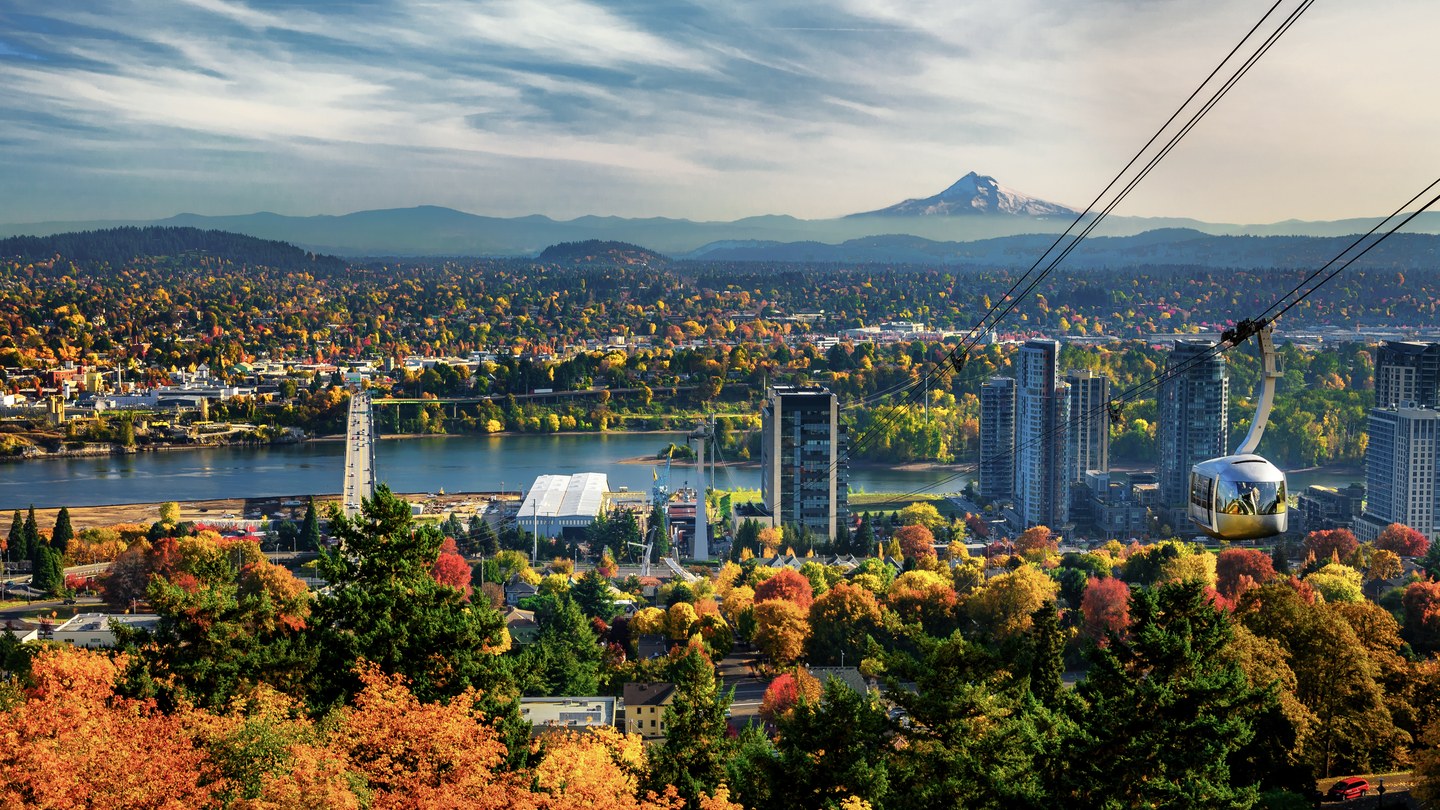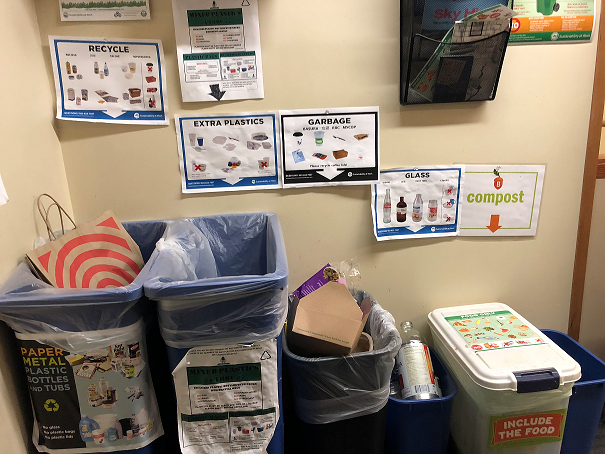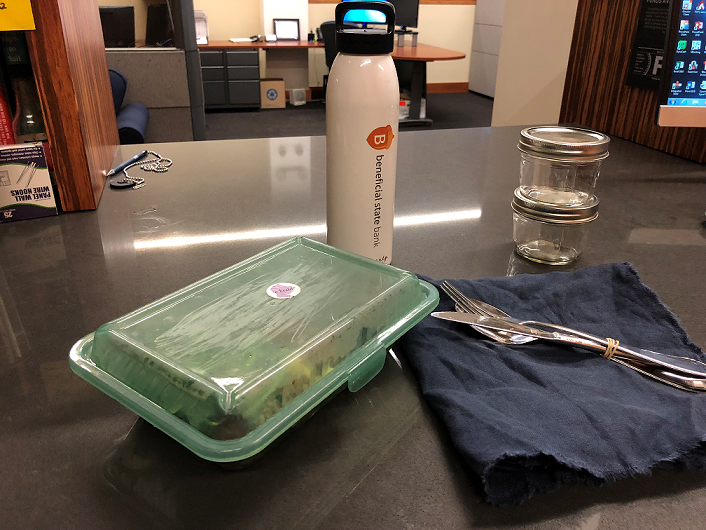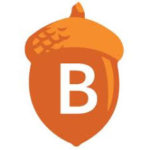Shrink your environmental footprint with this DIY urban mess kit

Did you know that Beneficial State Bank’s Fresno branch was the first CDFI in the Central Valley to become a certified California Green Business? If you’re reading this, you probably already know about our environmental sustainability efforts in the community. But how many of you know what goes on behind the scenes??
You’re about to find out! I’m going to highlight the ways in which we’re striving to be a model for environmentally-sustainable companies. I’m also going to challenge you to think about steps you can take to reduce waste (hint: your very own DIY urban mess kit). You can think of our bank in Portland as a small-scale model of our community. We hope our internal business practices will spark some ideas for how you can lower your environmental footprint everywhere you go! So put on your surgical mask because we are about to dig through some trash facts.
Did you know that many cities throughout the world sell their waste to China to be recycled? According to the Guardian, in 2010 China imported 7.4 million tons of discard plastic, 28 million tons of waste paper and 5.8 million tons of steel scrap. The big news of 2017 is China has actually stopped accepting foreign recyclable items through an initiative that has been translated into English as “National Sword.” Sword cracks down on illegal plastic recycling, like contaminated plastics that arrive in China either dirty or moldy, which leads to these plastics ending up in China’s landfills. China is tired of being the world’s garbage dumping ground, which is what led me to write this article. Let’s get back to the banks recycling efforts.
Take a look at this picture:

At first glance, our recycling system in Portland is confusing. But if you look closely, you see that we have from left to right. Mixed Recycling, Other Plastics, Landfill, Glass, Compost and a box for recycling metal lids. We have so many different bins because of the style of Portland’s extensive recycling system, which is considered a “single stream” recycling system. Many cities offer “single stream” recycling: You can throw all of your recyclable items into one bin, the hauler (aka your neighborhood recycling person) comes to pick up your bins, dumps them into their truck, takes the recycling to highly advanced sorting facilities which then separate all the items. Sounds great, right!? Not so fast! This comes with challenges— the biggest one being contamination.
Even though we’re able to recycle special items here in our Portland office, you may be surprised to find out that many are NOT recyclable. Examples include Starbucks cups and food takeout clamshells. The fact that so many products cannot be placed in our plastic recycling makes sorting a challenge for Portlanders. This is why our Beneficial State Green Team invests so much time and energy into making sure every employee is knowledgeable about our recycling methods.
And now for the DIY part: On a daily basis, we toss coffee cups, straws, lids, plastic silverware and napkins. You can easily reduce your waste by replacing those items with a reusable coffee container, steel straw, metal silverware and hankie. It’s your very own urban mess kit! Building your kit is easy—you can pick most of these items up at your local stores. Check out my personal kit:

In my backpack, I keep my Liberty Bottleworks, Hydroflask, and GoBox membership (well, I use an app for the last one). I also keep mason jars around for buying in bulk when I make a trip to the grocery store. People’s Food Co-op is a great example of a business in Portland that encourages customers to get creative about cutting waste. They simply weigh my mason jars, or I can weigh them myself before filling them up. When I go to the register, they subtract the weight of the jar off the total weight. This does two things. One, it keeps a container that would be recycled or trashed out of the bins. And 2, it also keeps emissions down. Brilliant! In 2008, McDonald’s stated that they sell 1 billion of coffee per year. I divided this number by $3 (the cost of one cup). That amount is staggering: 333 million coffee cups!
For the new year, I challenge you to look at your personal waste stream to see what you can cut out. Try making an urban mess kit to navigate the concrete jungle. Don’t be afraid to challenge the norm! If you see something that can be done differently, ask that person or company to do it. Offer up some advice for how they can easily make a small but mighty change. A changemaker is only as powerful as the ask. For all the readers out here, I would love to see your mess kits! Feel free to add any waste-reducing ideas you have in the comments below!
Wish you had your own Green Team to keep you on track? Check out Portland’s city-wide program Sustainability at Work or get in touch with us!
Stanley is a Beneficial Banker based in Portland, OR.
This blog post reflects the author’s personal views and opinions. It does not represent the views and opinions of Beneficial State Bank and/or Beneficial State Foundation.


